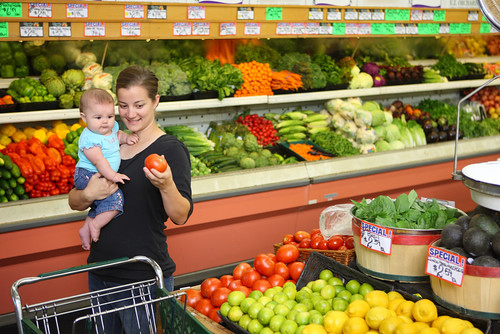
July is the height of summer grilling season and throughout the month USDA is highlighting changes made to the U.S. food safety system over the course of this Administration. For an interactive look at USDA’s work to ensure your food is safe, visit the USDA Results project on Medium.com and read Chapter Seven: Safer Food and Greater Consumer Confidence.
Its summer and specialty crops - fruits, vegetables, tree nuts and dried fruits – fill our plates with color, taste and nutrition. Consumers are finding their favorite fresh produce in the grocery store or their farmers market. Other specialty crops like cut flowers and nursery crops lend beauty and interest to our homes and yards. And the growers responsible for the produce are making sure it is safe through the U.S. Food and Drug Administration’s (FDA) Food Safety Modernization Act (FSMA).
USDA is working closely with FDA and the specialty crop industry to help address concerns and research needs as they work to implement the produce safety rule. One resource to help growers address food safety issues is the new Specialty Crop Multi-State Program (SCMP), administered by USDA’s Agricultural Marketing Service (AMS). This grant program brings together multi-state teams to research and develop solutions to practical problems that cross State boundaries within the specialty crop industry.
For instance, a grant was awarded to Washington State Department of Agriculture to work with LINC Foods, Mission Mountain Food Enterprise Center, Farm Commons, and Rural Roots to increase the use of Good Agricultural Practices (GAP) by specialty crop growers and provide them education and resources on FSMAs. Participating in programs like USDA’s Good Agricultural Practices (GAP) is one way that farmers and producers can demonstrate to buyers and consumers that they are adhering to industry food safety standards. This project will create a unique opportunity in the region to build the capacity required to increase specialty crop sales with growers and grower organizations in, Washington, Idaho and Montana.
Through another SCMP grant, New York Department of Agriculture and Markets will join Cornell University and Virginia Tech - Eastern Shore to look for ways to improve food safety practices in produce packing houses and processing facilities. Listeria has emerged as a food safety concern for specialty crops and has been responsible for a number of produce recalls.
This effort will help gain a better understanding of issues to improve control methods. The project will involve field studies in produce packing houses and processing facilities including environmental and genetic sampling. The results will be utilized in creating guidance documents for training and hands-on workshops. The training provided through this project will support the produce industry in the implementation of scientifically validated “preventive controls” required under the FSMA Preventive Controls for Human Food Rule.
In addition to food safety, the SCMP grants will address national and regional issues relating to plant pests and disease, and related topics as well as increase the effectiveness and scope of efforts to market specialty crops.
USDA is dedicated to strengthening rural America and increasing opportunities for specialty crop growers, helping to keep our nation’s economy healthy. The broad range of projects authorized under the SCMP grants will contribute to the long-term success of specialty crop producers and benefit consumers with safe and nutritious food on our plates.
